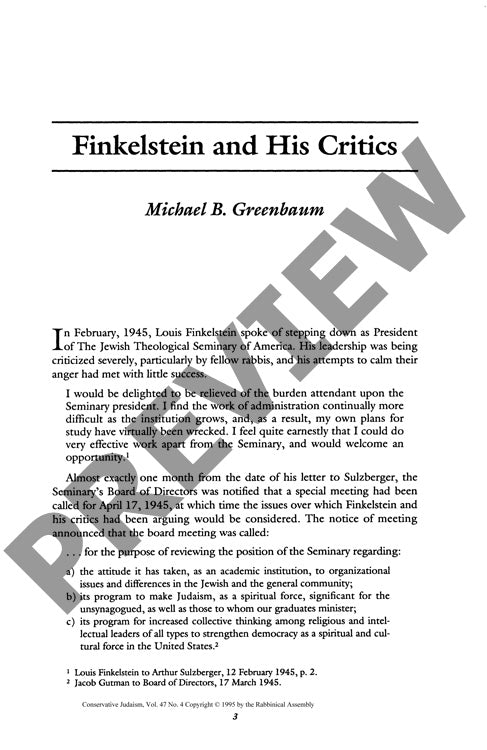Finkelstein and His Critics
Couldn't load pickup availability
In 1940, Louis Finkelstein assumed leadership of The Jewish Theological Seminary of America amid a fierce debate over the institution's fundamental purpose and direction. His presidency immediately sparked intense opposition from Conservative rabbis Milton Steinberg, Solomon Goldman, and other movement leaders who saw his ambitious interfaith and public engagement initiatives as dangerous distractions. Through extensive archival correspondence and institutional records, a complex power struggle emerges between Finkelstein's expansive vision of the Seminary as a national center for American Jewish thought and his critics' insistence on a narrower denominational focus. The controversy centered on three of Finkelstein's signature programs—the Institute for Religious and Social Studies, the Conference on Science, Philosophy, and Religion, and the Eternal Light radio program—which aimed to position the Seminary within broader American religious and intellectual discourse. The conflict reached its climax at a pivotal Board of Directors meeting on April 17, 1945, where Finkelstein successfully defended his agenda through five strategic proposals that garnered near-unanimous support. Yet this institutional victory failed to resolve the underlying tension between competing visions of the Seminary's mission, as criticism persisted throughout the 1940s and 1950s. The leadership crisis ultimately shaped both the Seminary's trajectory and Conservative Judaism's struggle to define its place in mid-twentieth century American religious life.

More Information
-
Physical Description
-
Publication Information
Published 1995
ISBN
-
Publication Credits
Michael Greenbaum

